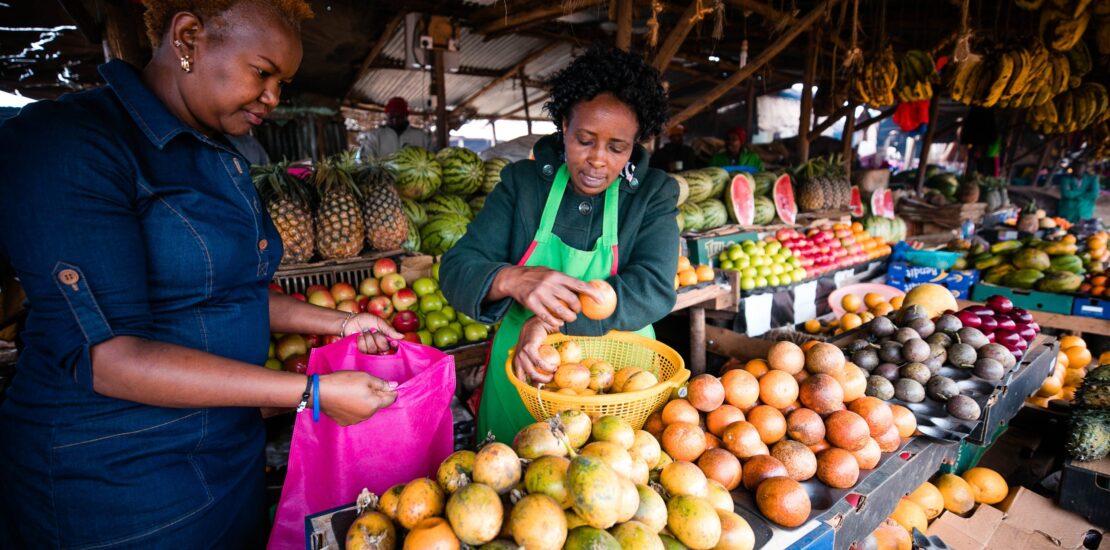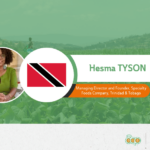News digest: Agri-food markets and production
- 13/07/2021
- Posted by: Gaetan Dermien
- Category: Africa, Avocados, Bananas, Caribbean, News, Pacific, Peas, Pineapples, Potatoes

Global
Increasing airfreight demand
A report from the International Air Transport Association (IATA) notes that air cargo demand is increasing by 12% a year. North American Airlines, and airlines in all other regions (Middle East, Africa) except for Latin America, contributed to this growth. The capacity is almost 10% below pre-Covid-19 levels due to the ongoing grounding of passenger aircraft. But freighters are continuing to be used in order to compensate the lack of available belly capacity. The supply chain dynamics remain supportive for air cargo, and the competitiveness against sea shipping has improved. According to IATA, air cargo rates have stabilised since reaching a peak in April 2020, while shipping container rates remain relatively high.
Source: Eurofruit, 8 June 2021
World avocado imports could reach a record level in 2020/21
According to the latest provisional data from CIRAD’s journal Fruitrop, global avocado imports should reach 2.5 MT in the 2020/21 season. This would represent an increase of 0.3 MT (+14%) compared to imports in the 2019/20 season. This very good performance is linked in particular to the resilience of the American markets, which represent 40% of world demand; to the increase in demand on the European market; and to the growth in production capacity, particularly in Kenya and Tanzania.
Source: La veille agricole, 21 June 2021
New packaging technology for fruit and vegetables
All types of fruit and vegetables can now be seafreighted thanks to a new packaging technology. Dutch company PerfoTec has developed a unique biodegradable film that is naturally permeable to water vapour. Combined with PerfoTec’s laser perforation technology it has the properties to optimise the atmosphere. “Compared to the earlier standard fossil fuel-derived films, we’ve gone from extending shelf life by a few days to over 40%. That gives producers an enormous cost advantage and it results in a considerable CO2 saving in the entire chain,” says director Bas Groeneweg.
Source: Fresh Plaza, 17 June 2021
AfricaEconomic consequences of invasive alien species
According to a CABI study, “Towards estimating the economic cost of invasive alien species to African crop and livestock”, the economic cost of invasive alien species to the African agricultural sector is estimated at $3.6 trillion per year, or 1.5 times Africa’s GDP. This economic cost is measured by taking into account yield losses of important crops such as maize, tomato, cassava, mango and banana, and labour costs for weeding and loss of income from livestock. The report makes recommendations for control such as early detection involving large-scale control of these invasive pests to reduce losses.
Source: Commodafrica, 1 June 2021
More avocado farming in Africa
Nigeria and Uganda aim to increase their avocado production and be recognised as key players in Africa in the next decade. Kenya is the reference (among the top 10 in the world) and shows that the avocado industry can be a source of revenue for rural farmers. But newcomers to the international markets, like some of Latin America’s top exporting countries, have to face environmental issues (water shortages, destruction of biodiversity). African avocado farming is based on smallholders and is rainfed, so is less environmentally harmful than other origins in the world. But this benefit could decrease in the future due to climate change.
Source: DW, 1 May 2021
Kenya: Agreement to eliminate multiple fees on goods transported across counties
The cost of doing business in the country is expected to reduce drastically after the National and County Governments agreed in principle to eliminate multiple levies and fees charged on goods transported across counties. Such charges will be restricted to the county of origin, essentially saving traders and businesses from numerous CESS and other fees currently levied by county governments. The Ministry of Industrialisation and Trade and the Council of Governors will now meet to develop an agreement for the 47 governors’ signatures. The implementation of the resolution will be welcome news, especially to traders who ferry goods across county borders and who have to part with money for various charges independently demanded by counties. The charges are inevitably passed on to consumers, raising the cost of goods. Under the proposed agreement, only the county originating the goods will now be expected to impose the levies.
Source: PD Online, 1 July 2021
Kenya: Lamu port and new perspectives
Lamu Port, located in the northern part of the Coast Region, officially opened at the end of May 2021. The construction started in 2016, and the port will serve Ethiopia, South Sudan and other landlocked nations. The Special Economic Zone near the new port could bring benefits due to the presence of companies involved in agricultural commodities such as tea and coffee. Other products, such avocados and livestock, could be exported from the port. Factories involved in canned fruits, vegetables and juices are expected to be set up at the SEZ. The Africa Continental Free Trade Area (AfCFTA) agreement could be an opportunity for the development of this new port.
Source: Fresh Plaza, 17 June 2021, VOA News, 20 May 2021
Kenya: Potato imports from outside EAC now subject to 30% tariff
At a time when demand is rising sharply, and potatoes are being bought by restaurant chains from COMESA members such as Egypt and South Africa, a 30% tariff is to be introduced for a year in Kenya, pending the finalisation of the revision of the East African Community (EAC) common external tariff. This measure would aim to limit imports and encourage local potato production. With an estimated annual need of 30,000 t of potato seeds, the country currently produces only 6,700 t. Cultivated on 120,000 ha, the potato is the second most important staple food in Kenya, after maize.
Source: La veille agricole, 21 June 2021
Kenya: Good Practice Guides – assuring the safety of avocados, beans and peas
The New Export Trade (NExT Kenya) programme is working on the development of Good Practice Guides for avocados, and for beans and peas, to ensure these products meet international standards. The development of the two Guides was launched in Nairobi on 25 May by the Principal Secretary in the State Department for Crop Development and Agricultural Research in the Ministry of Agriculture, Livestock Fisheries and Cooperatives, Prof Hamadi Boga. The function was attended by the Competent Authorities, business membership organisations and horticulture produce exporters.
Source: Horticulture News, 29 June 2021
Kenya: Launch of the ENABLE Kenya initiative for youth in agriculture
On 4 June, President Kenyatta launched the Empowering Novel Agribusiness-led Employment (ENABLE Kenya) initiative, a capacity-building and youth support initiative in agriculture and agribusiness aimed at supporting job creation, enhancing attractiveness and ensuring generational turnover in the sector. Out of a total of KES 2.2bn (€16.7m), KES 500m will be used to finance start-ups, KES 900m for low-interest loans and KES 800m for guarantee funds for financial institutions. The ENABLE Kenya initiative, funded by both the Kenyan government and the African Development Bank (AfDB), aims to support 10,000 young Kenyans in the agricultural sector and create 50,000 indirect jobs.
Source: La veille agricole, 7 June 2021
Uganda: Employment assistance for youth in agriculture
The humanitarian aid and development agency GOAL Uganda has launched a five-year programme of assistance that will enable 300,000 rural Ugandan youth to access work in the agricultural sector. In partnership with the MasterCard Foundation’s Young Africa Works in Uganda – Markets for Youths programme, the programme will directly target 345,000 individuals, mainly youth, refugees and people with disabilities. The assistance will provide access to financial services and products, business management skills and facilitate integration into the agricultural market.
Source: La veille agricole, 7 June 2021
Mauritius-Egypt: Boosting trade and technical partnerships
The Egyptian Ambassador in Mauritius, Ministers of Agriculture and Foreign Affairs of Mauritius declared their intention to strenghthen their trade relationships. Egypt is an important partner for the Common Market for Eastern and Southern Africa (COMESA) and represents 40% of Mauritius’ annual requirements for fruit and vegetables.
Source: Fresh Plaza, 2 June 2021
Nigeria: New cassava processing company
Shell Oil Company and Rivers State have established the Rivers Cassava Processing Company Limited. The partnership also includes the Dutch company Vieux Manioc BV and the Dutch Embassy in Nigeria. The new company aims to process cassava into flour. Nigeria is the world’s largest producer of cassava (about 20% of the world’s production) but is not meeting the growing demand of the domestic market.
Source: Commodafrica, 2 June 2021
Nigeria: Ginger is a growth industry
According to Nigeria Export Statistics, ginger exports represent 23% of the country’s GDP. Nigeria produces approximately 37,000 metric tons of fresh ginger annually. Of this, 10% is consumed fresh locally, while 90% is consumed in its dried form. Nigerian ginger is rated as one of the best in the international market due to its pungency and high-level of oleoresin oil. Ginger processing thus plays a key role in the value chain in making sure that the ginger meets international quality standards for overseas consumers. The recent opening of a new ginger processing plant in Lagos will support growth of the industry. Although Nigeria accounts for 14% of the global market share of ginger production, it earns just $1 million from exports annually. The global ginger processing market is expected to grow at a cumulative annual growth rate of 13.4% between 2021 and 2026.
Source: Fresh Plaza, 28 May 2021
Nigeria: Export potential for unexploited vegetables
According to the International Trade Centre, exports of edible vegetables, tubers and roots from Nigeria represent only 3% of the world’s imports. India is the largest importer of this produce from Nigeria (almost 48%), followed by USA (13%), UAE (6%) and UK (5%). The Agricultural Fresh Produce Growers & Exporters Association of Nigeria (AFGEAN) says that Nigeria loses between 55% and 72% of its cultivated fresh produce (fruits and vegetables) before it is consumed or exported.
Source: Fresh Plaza, 29 June 2021
Togo : Togo-EU Economic Forum 2021
During the recent Togo-EU economic forum (13–14 June), a number of actions were carried out such as the signing of Togo’s letter of accession to the OECD Development Centre; the official launch of the Memorandum of Understanding between the Chambers of Commerce and Industry of Togo and the European Union and the European Chamber of Commerce in Togo; the granting of funding for projects, particularly in agribusiness, within the framework of the National Development Plan (NDP-2018-2022) for an amount of approximately FCFA 852 billion (€ 1.3 billion); and the inclusion of Togo on the list of countries authorised to export honey to the EU.
Source: Commodafrica, 16 June 2021
Côte d’Ivoire: Financial support from World Bank for the agri-food sector
The World Bank has just announced a $250 million grant as part of the launch of the agri-food sector development project in Côte d’Ivoire, out of a total cost of $295.38 million (the “local beneficiaries” will contribute $30.70 million and the “borrowers” $14.40 million). Several regions will benefit from this financing, such as Abidjan, San Pedro, Bouaké, Man, Daloa, Gagnoa, Abengourou and Aboisso, corresponding to important consumption and supply centres and the presence of six agropoles. The project will target 212,500 cassava producers, 254,000 vegetable producers, and nearly 600 SMEs, which are distributed according to the size of their investments. The project also aims to strengthen coordination and partnerships in value chains for national and foreign investments. Audits will be carried out among producer organisations and inter-professional organisations will be gradually created. It is also planned to build wholesale markets in the main cities including Abidjan, Abengourou and Daloa.
Source: Commodafrica, 8 June 2021
B2B matchmaking meetings on organic fruit and vegetables
The Import Promotion Desk (IPD) – a German initiative for import promotion that connects European importers with carefully evaluated exporters – is holding a virtual B2B event, “Organic Fresh Produce“, from 5 to 16 July. The initiative will present eight selected companies from Côte d’Ivoire, Ecuador, Egypt, Peru and Ukraine, producers of tropical and subtropical fruits such as pineapples and bananas. Through the IPD’s free matchmaking service, importers can get to know new and reliable trading partners and expand their organic product range in a high-quality way.
Source: Fruchthandel, 17 June 2021
Oranges in Benin: A sector that has yet to be built
Orana S.A. is the only company formally established in Benin that works in the orange sector. “We have more than 6,000 producers and have gathered around us more than 45 cooperatives to ensure the supply of raw material when the factory starts up,” explains Togbédji Ahokpa, CEO of Orana S.A. The company currently exports part of its production to neighbouring Nigeria and Togo; the rest is sold locally. Benin currently produces less than 150,000 tonnes of oranges per year. According to M. Ahokpa, “there will still be a lot of rotten oranges, for lack of a reliable outlet. This is why Orana is fighting to encourage the Beninese to consume more oranges, to be able to export them to Europe and then process them for export via its factory.”
Source: Fresh Plaza, 30 June 2021
Zimbabwe: New emerging crops
Emerging crops such as blueberries and pecan nuts are increasing across the provinces. According to the Lands, Agriculture, Fisheries, Water and Rural Resettlement Ministry, the current area under blueberries is 285 hectares, with an estimated production of 1,140 tons giving a yield of 4 tons per hectare. Old varieties of stone fruits are being uprooted to plant new improved varieties with better yield and tastes more appreciated by markets. This is part of the Zimbabwe Horticulture Recovery and Growth Plan.
Source: Fresh Plaza, 6 May 2021
Zimbabwe: Horticulture sector needs investment
There is a strong need for the Government and its partners to invest more in the horticulture sector, according to the Minister of State in charge of monitoring and implementation of special agriculture and related programmes, Davis Marapira. He said current production levels in the sector were below 5% and that the target was to increase GDP contributions to 10% and above. “A good example is citrus, as a country we used to do 10,000 hectares and currently, we are only doing 5,000 hectares.” Producers need to be assisted to expand to be able to meet the demand for citrus locally, and for the international market. Minister Marapira said a lot of products within the horticulture system were being exported, and that it was important for the sector to put more focus on value addition.
Source: Chronicle (Zimbabwe), 25 June 2021
Cameroon-Chad: Reopening of borders
The Chadian authorities have announced the reopening of the Chad-Cameroon border in mid-June 2021. Since the beginning of March 2020, the border has been closed following the first official cases of Covid-19 in Cameroon, in order to prevent the spread of the virus on Chadian territory. However, the decision to reopen the border on the Cameroonian side has not yet been taken. Ultimately, trade between Cameroon and Chad should be revived. Trade flows on the Douala-Ndjamena and Douala-Bangui corridors had dropped by 80% during March 2020 (compared to the same period in 2019). Before the closure, Chadian imports represented about CFAF 340 billion per year and Central African imports about CFAF 55 billion per year, all of which transited through the port of Douala.
Source: Investir au Cameroun, 18 June 2021
Ratification of the EPA between Cameroon and the UK
The bilateral Economic Partnership Agreement (EPA) between Cameroon and the UK was ratified by Cameroon on 28 June 2021. This agreement allows Cameroon to continue to benefit from preferential access (duty free and quota free) to the UK market for all its products. For the UK, it allows 80% of its exports to enter Cameroon duty free. However, a number of clauses remain to be negotiated. The UK accounts for about 13% of Cameroon’s total banana exports (nearly €10 million or CFAF 6.53 billion).
Source: Investir au Cameroun, 29 June 2021
More locust swarms in the Horn of Africa
According to FAO, new immature swarms continue to form from hopper band infestations in northern Somalia and eastern Ethiopia. Although the swarms are small and not very dense so far, they are becoming more mobile with cross-border movements between northwest Somalia, eastern Ethiopia, and southern Djibouti. Control operations are in progress. Most of the swarms are expected to concentrate on the plateau in northern Somalia. Once vegetation dries out, they are likely to move to the Afar region in northeast Ethiopia. The current developments have been anticipated and locust numbers in the Horn of Africa are lower than last year at this time. Nevertheless, new swarms that form during July are expected to move west to the Afar region in northeast Ethiopia where above-normal summer rains are predicted that would allow one generation of breeding from August to October.
Source: FAO Locust Watch, 29 June 2021
Caribbean
Dominican Republic: Major expansion of Hass avocados
Global logistical problems (which still persist today) have not slowed the growth of avocados. Export figures from the main producing countries (led by four Latin American countries) confirm the growth in shipments to international markets in 2020. The Dominican Republic is currently the second largest producer in the world. “At the moment, air logistics are slowly returning to normal, but before all this, the Dominican Republic was paying a 60 cent freight rate. After increasing in this last period, it has remained between 1 and 1.05 euros, which is quite a significant increase. Global freight rates have also risen, not least because of the fuel issue,” says Alejandro Ruiz del Portal, General Manager of Grupo Yazik. The avocado sector is undergoing significant development and demand for both the product and its by-products is increasing. In addition to frozen or processed fruit and ready-to-use food products, the production and marketing of avocado oil has grown significantly. Despite its size and potential, the avocado market is still very much focused on fresh fruit and, within this segment, on the extremely popular Hass variety. In the Dominican Republic, Hass avocados account for about 20% of production, but with new plantings of this variety underway, the total volume should increase significantly.
Source: Fresh Plaza, 30 June 2021
Belize: More export revenues in 2021
The Statistical Institute of Belize, through its latest External Trade Bulletin, showed that export revenues for the period January to April 2021 increased in value by almost 13% compared with the same period last year. Some export categories contributed to this increase, such as sugar and animal feed. But other categories declined, such as citrus (reduction of orange concentrate sales) and bananas.
Source: Fresh Plaza, 28 May 2021
Jamaica: Export growth for agricultural products in 2021
The Ministry of Agriculture of Jamaica announced that agriculture export earnings increased by 8.4% in 2020 despite the pandemic and some extreme weather conditions. Some commodities had a good results in terms of growth in value, such as yams (+24%), ackee (+7%) and sauces (+23%). The mango industry re-started exporting to USA and UK in April 2021 after being out of the market since 1999. The construction of a hot-water treatment plant, to be completed during 2021 and approved by the United States Department of Agriculture (USDA), will open new opportunities for export markets for the mango industry.
Source: Fresh Plaza, 18 May 2021, Fresh Plaza, 18 May 2021
Dominica signs agreement to begin construction of international airport
The Government of Dominica and Montreal Management Consultants have signed an agreement for the development and construction of the airport, set to be completed by 2025. As well as the benefits for tourism, those in the farming and fisheries sectors will greatly benefit, as exporting across the globe will become a viable option. “We need this airport to achieve the economic diversification which we have been speaking about for many decades. We need the international airport if we are to position ourselves with the rest of the region and the world by extension,” stated Minister for Blue and Green Economy, Agriculture, and National Food Security, Fidel Grant.
Source: News 784, 10 June 2021
Europe
Single-Use Plastics Directive
On 31 May the European Commission adopted the long-awaited Single-Use Plastics Directive (Directive (EU)2019/904) (SUP) Guidelines. The adoption of the SUP Guidelines is extremely delayed, and many Member States have already begun the process of transposition and implementation, as there is a deadline of 3 July 2021 for most measures. The following sections of the Guidelines are important for fruit and vegetable packaging:
4.1 Food containers
4.2 Packets and wrappers
4.5.4 Key elements to distinguish food containers from packets and wrappers
Note that the SUP Guidelines are only recommendations to Member States – they are not legislative.
Source: European Commission, 31 May 2021
Developing home compostable fruit labels to meet new legislation
A fruit label is an essential tool for fruit and vegetable produce identification – it allows for product tracking and retail management, and provides consumer product data (origin, variety, etc.), brand differentiation, and product trust. Sinclair International is working with industry bodies to develop a label that complies with new French legislation banning fruit and vegetable labels unless they are home compostable, and wholly or partially bio-based. This legislation comes into effect on 1 January 2022. In Belgium, the Government of Flanders has passed legislation banning fruit and vegetable labels unless the label is functional, has legally required information, or is certified as home compostable. The varying complexities of the packinghouse environment (temperature, humidity, packing line configuration), and the wide variety of fruit skin types, present unique challenges for label conformity and adhesion. So it can take three to five years to develop, test and certify an effective compostable label construction. Sinclair’s Duncan Jones says “The deadline for the French legislation is not far away but we’re excited with OK compost certification of Sinclair EcoLabel HOME™ just around the corner.”
Source: Fresh Plaza, 29 June 2021
EU markets: Less organic fruit and vegetables imported in 2020
A European Commission report, “EU imports of organic agri-food products: Key developments in 2020”, points out the increasing consumption of organic food on EU markets, but less imports of organic agri-food, between 2019 and 2020. In 2020, the EU imported 2.79 Mt of organic agri-food products (down 1.9% on 2019), 1.29 Mt of which was fruit and vegetables. Among agro-products imported, primary products (including meat, fruit, vegetables, yogurt and honey) accounted for 42% (by volume) and 53% (by value). The Netherlands is the main importing country (31% of total imports). Most of the organic fruit and vegetables imported are tropical fruits, nuts and spices (0.84 Mt / +9% representing 65% of organic fruits and vegetables), including bananas (81% of tropical fruits). Citrus imports (+31%) and other organic fruits (+7%) also increased, while imports of vegetables and preparations remained stable. Only imports of organic fruit juices decreased in 2020 (-11%).
Source: Fresh Plaza, 16 June 2021
UK organic grew in 2020
According to the Organic Statistics for 2020 published by Defra, certified organic land in conversion across the UK increased by almost 12%. The Soil Association saw this growth in its activities with an increase of 24% of land conversion to organic during the year up to March 2021. Several factors contribute to this, such as incentives to farmers to convert to organic, growing demand for organic produce during the pandemic, benefits for the environment and climate, etc. The Soil Association report “Organic Farming and Growing – Does it Stack Up?” mentions a higher net farm income on organic arable and livestock farms compared to non-organic. The UK organic market grew by almost 13% in value in 2020.
Source: Fresh Produce Journal, 28 May 2021,Fresh Plaza, 2 June 2021
Germany: Increase in organic farming
Figures published by the Federal Statistical Office (Destatis) in Germany show a 58% increase in organic farms between 2010 and 2020 (26,100 vs 16,500). Their share in the total number of farms rose from 6% to 10%. Half of all organic farms are located in Bavaria (38%) and Baden-Württemberg (17%). The land farmed organically increased by 69% in the same period (from 941,500 to 1.6 million ha). In Germany grassland – mainly meadows and pastures – accounted for more than half of the organically farmed area (52%), and arable land 46%. The area under organic cultivation for apples, pears and cherries, and for soft fruits such as currants and raspberries, has increased significantly.
Source: Fresh Plaza, 21 June 2021
France: Rise in production costs for ready-to-use fruit and vegetables
In a global context of rising raw material costs, France’s SVFPE (Union of Ready-to-Use Fresh Vegetable Products Manufacturers) has announced a significant increase in production costs. Companies face higher packaging costs (on average, plastic 10–60%, cardboard 10–20%) as well as transport costs. These increases are in addition to significant investments made in the upstream and downstream sectors in the framework of the circular economy and the agro-ecological transition (in organic farming, reduction of phytosanitary products, and adaptation to climate change).
Source: Mediafel, 11 June 2021
Portugal: Avocado production in the southern region
A recent study carried out by consultancy bureau Agro Ges suggests that production of avocados in the Algarve region will generate an annual revenue of €40 milllion. More than 1,830 ha have been planted, and the water used by avocado farming averages 6,500 m³/ha per year.
Source: Fresh Plaza, 21 June 2021
Spain: Consumption of fruit and vegetables in 2020
According to the “Food Consumption Report in Spain 2020”, in 2020 Spanish fresh fruit consumption grew by 10% in volume and 22% in value compared with 2019, and Covid has driven this growth. The consumption per capita represents almost 100 kg (+10%) and the spending grew by 21.5%. The most consumed fresh fruits were citrus, exotics and pome fruits. For fresh vegetables, consumption increased in volume (+12.5%) and in spending (+16.4%). The most consumed vegetables were tomatoes, cucumbers, aubergines, zucchini, peppers, cabbages, and broccoli, followed by roots, bulbs and tubers (onions, carrots, and garlic). Leaves, stems and pods were the second group in terms of market value share.
Source: Fresh Plaza, 7 June 2021

![EU and GB MRL changes in 2024 (May– August 2024) 9-FFM+-[ENG]](https://news.colead.link/wp-content/uploads/2024/06/9-FFM-ENG-150x150.jpg)



